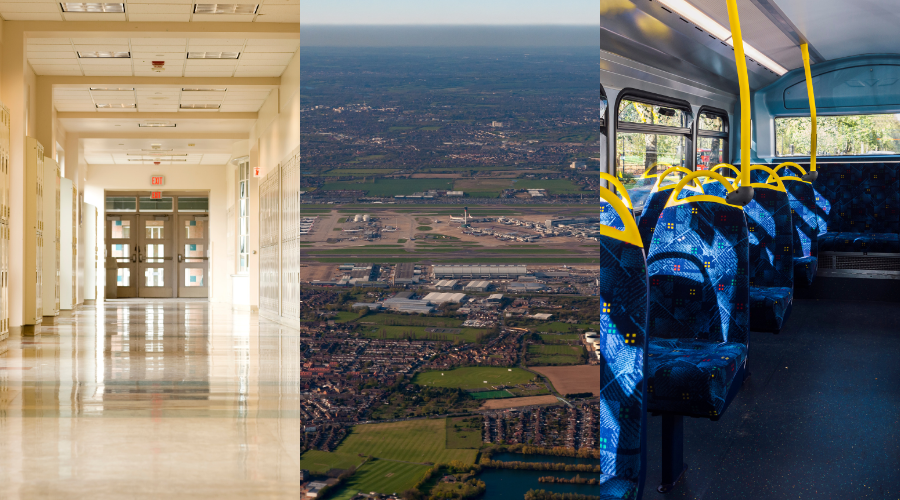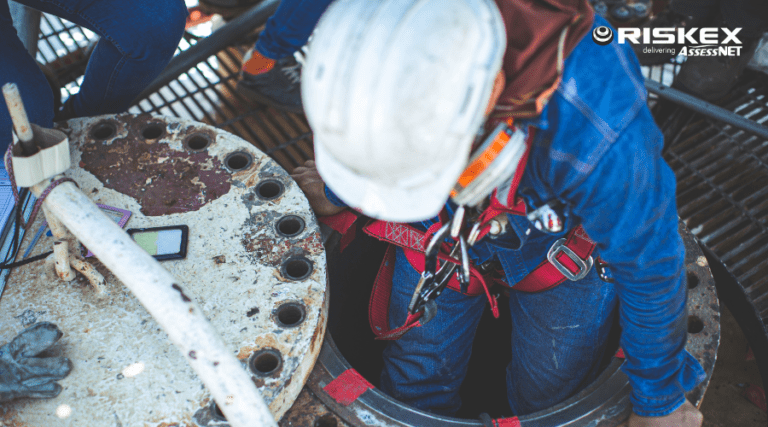Insights from recent incidents for smarter emergency planning
Organisations in every industry have a responsibility to be ready for the unexpected, not only to protect life and assets, but also to support business continuity and reputation.
In this article we take a look some of the UK’s most recent incidents and highlight how they demonstrate both successful and failed emergency responses.
Success story
Cliff Park Primary Academy, Norfolk
On 18th July, Cliff Park Primary Academy in Gorleston faced a sudden fire on the final day of term. The school’s efficient protocols led to a quick and full evacuation and initial crews provided proactive firefighting techniques that quickly brought the fire under control.
As a result, every child was evacuated safely across the playing field, with no injuries reported, and the incident was fully controlled within the hour. Norfolk Fire and Rescue officials praised the rapid, flawless execution, a prime example of emergency readiness.
Near miss
Heathrow Airport Substation Fire
In March 2025, a fire at the North Hyde electrical substation knocked out Heathrow’s power, shutting down Europe’s busiest airport for around 16–20 hours. This disruption stranded approximately 200,000 travellers and grounded over 1,300 flights, costing the industry tens of millions.
Key failures that were identified:
- A preventable fault first detected in 2018—no remedial action was taken.
- Fire-suppression systems at the substation had been inoperative since 2022. A National Grid transmission review in 2022 indicated that fire suppression systems were “inoperable” and a fire risk assessment in July last year stated that if a fire started in any of the three super grid transformers at the substation that it would not be suitably suppressed. This assessment resulted in the issuing of a “high priority” action for fire systems to be “appropriately serviced and maintained”, but that action remained outstanding at the time of the incident.
- Power resilience plans were insufficient: backup sources couldn’t fully support critical infrastructure.
A digital safety system would have closed the loop from risk assessment to maintenance, preventing the fire suppression system from remaining inoperable at the time of the Heathrow substation incident.
Tragic losses
Cambridgeshire Guided Busway
In April 2025, Cambridgeshire County Council was fined £6 million after a devastating failure on the Guided Busway system, where three people lost their lives between 2015 and 2021 and several others suffered serious injuries. Investigations revealed the busway operated for years without basic safety measures:
- There was no risk assessment until August 2016, five years after it opened.
- The busway had unlit crossings, inadequate pedestrian separation, missing signage, and unsafe vehicle speeds.
- The council chose to appeal enforcement actions from the HSE rather than implement safety improvements.
A long and complex investigation by the HSE concluded these were systematic management failures:
“Had Cambridgeshire County Council properly assessed and managed the risks these deaths simply would not have happened.”
Digital tools such as AssessNET help ensure risk assessments are conducted timely, assign clear ownership, and track remediation tasks, preventing serious oversights and tragic consequences.
You can read the full investigation here
Conclusion
The ability to detect hazards early, communicate clearly, coordinate efficiently, and learn from each event defines expert-level health and safety.
When combined with digital tools that automate maintenance, response, and data management, organisations significantly enhance resilience protecting staff, public, operations, and reputations.
There is a consistent theme:
Strict protocols transform reactive responses into proactive defence.
Final lessons synopsis:
- Regularly test evacuation procedures and communication systems to ensure they’re practical, swift, and effective.
- Ensure maintenance actions are captured, tracked, and escalated, especially for high priority issues.
- Avoid relying on a single point of failure for critical infrastructure.
- Use digital platforms to automate risk assessments, manage improvement notices, and enforce timely closure of safety tasks.
- Prioritise guided and clear accountability, especially where multiple hazard control measures interface with public areas.






